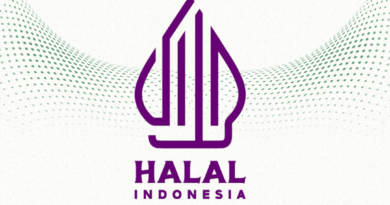Believing in the Certainty of Cause and Effect is Part of Shirk?
In the Qur’an, the word “shirk” with its various variants has different meanings according to the context. In QS. An-Nisa’: 12, shirk means partnership in the ownership of property, in QS. Az Zukhruf: 39, means fellowship in experiencing torment in the hereafter, and in QS. Ali ‘Imran: 36, is defined as a partnership in power between Allah and His other creatures.
According to ar-Raghib al-Asfahaniy, shirk is divided into two: 1) major shirk, namely believing in the existence of God other than Allah or associating partners with Allah with His creatures; 2) minor shirk, namely associating partners with Allah in the purpose of worship or doing good deeds whose purpose is to gain praise from others, even though the purpose of worship and doing good deeds should only be to seek the pleasure of Allah SWT. These two kinds of shirk are unlawful, and Allah SWT will not forgive them except by repenting before death (QS. an-Nisa’: 48).
As for the forms of shirk, they are countless; for example believing in divine power or power (divinity) in objects that are considered sacred such as banyan trees, keris, carnelian, bahar roots, animals, graves, stones, statues and so on. Saying the word “if” when putting aside God’s destiny (certainty), is also a form of shirk.
For example someone says: ‘If he had not boarded the plane, he would have survived’, because he believes that the cause of his death was the plane that crashed. Even though he died because it was ordained by Allah SWT. If you don’t get on a plane, if Allah has decreed it, you will surely die too.
In the Tarjih Fatwa it is stated that providing an explanation accompanied by a description of causes and effects is fine, because Islam also recognizes the existence of this law of causality. But it must also be accompanied by an explanation that all this is due to God’s destiny. Returning events to cause and effect alone, without believing in Allah’s destiny is the custom of hypocrites. In a hadith it is stated as follows:
It was narrated from Abu Hurairah, that Rasulullah SAW said: “Try hard to get what is beneficial to you and ask Allah for help, and do not be weak in spirit. And if you are struck by a disaster, do not say: ‘If I had done this and that, it would have been like this and that,’ but say: ‘Allah has predestined, and what He wills, He will do. Because actually the word ‘law’ (if) it opens the devil’s actions.’” (Takhrijkan by Muslim).
The two verses above emphasize that the killing was due to Allah SWT’s destiny, while the Prophet’s hadith forbids saying ‘law’ (if only), which means only thinking about causes and effects, and giving orders that it is obligatory to surrender everything to Allah SWT, because the causes and consequences of Allah sell who wanted and created it. It’s different if the word ‘law’ is an expression of regret as part of an effort to introspect or take lessons from an event and not deny Allah’s destiny, then that is permissible.
However, humans are guided to achieve a good destiny from Allah by making efforts or endeavors. In fact, humans are obliged to try their best, and then surrender everything (put their trust) to Allah SWT about His destiny. It is not permissible for someone to just surrender without making any effort or effort at all, just waiting for God’s destiny to come.
For example, for example someone who is very sleepy, as a form of effort he should not drive a car before getting sufficient rest. However, driving while drowsy is very dangerous and can cause accidents. After he feels he has had enough rest and is no longer sleepy, then he can drive a car better and put his trust in Allah by praying or at least reciting the basmalah. If it turns out that an accident still occurs and he dies, then that is God’s fate. Here, what needs to be understood is that the person has maximized the obligation to make efforts and trust.
Allah SWT says: “… then when you have made up your mind, then put your trust in Allah. Indeed, Allah loves those who put their trust in Him.” [QS. Ali Imran, 3: 159]
Another example, when someone is sick, they should try to seek treatment. After recovering, if he says ‘I am cured because of treatment’, as long as he believes that the treatment is part of his endeavor and that his recovery is God’s destiny, then that is not considered shirk and there is no problem. If it turns out that he does not recover and even then dies, it is the same as the previous example, that person has maximized the obligation to seek and put his trust in.
Thus, Islam allows explanations of cause and effect, with the obligation to believe that everything is the destiny of Allah SWT. Destiny is God’s domain, humans will never know beforehand. Humans have an obligation to make maximum endeavors or efforts and surrender or leave the results (destiny) to Allah SWT.




